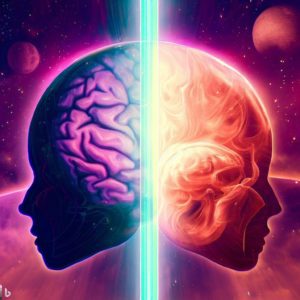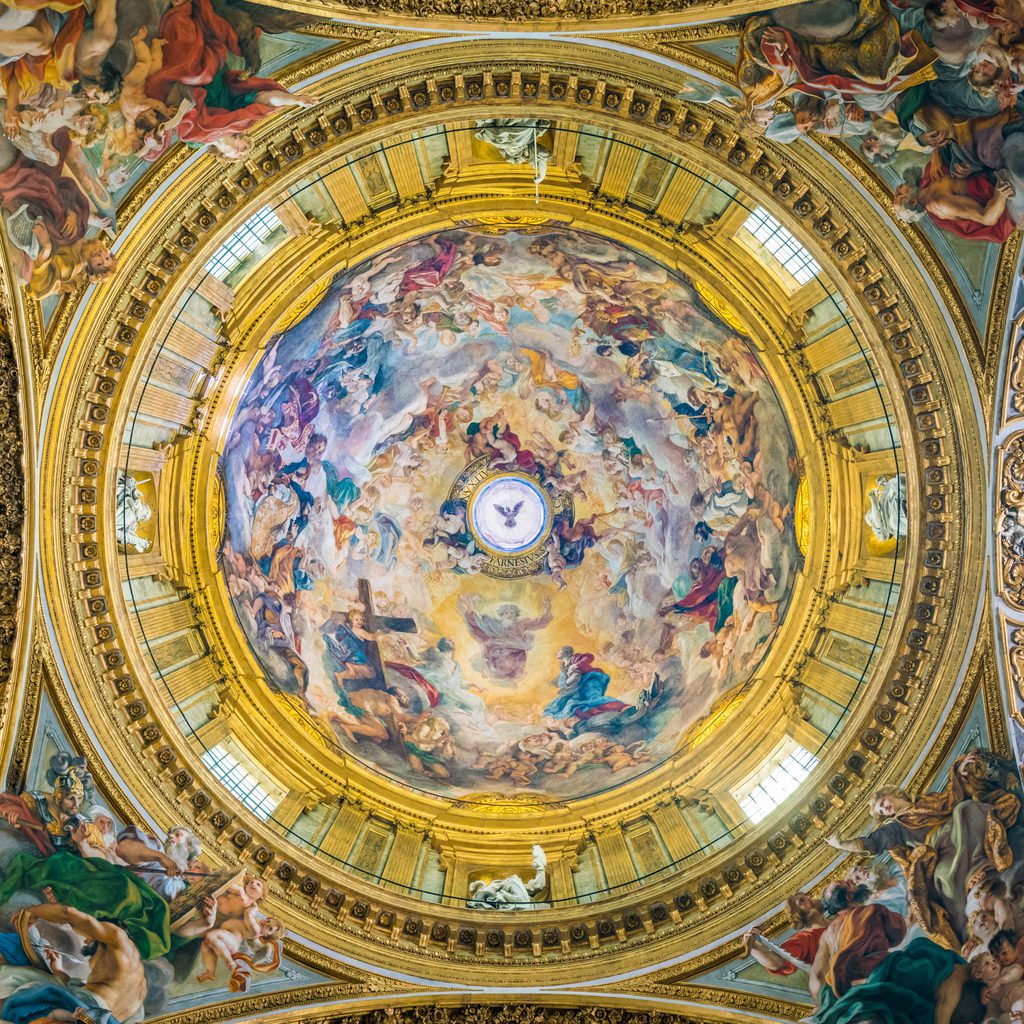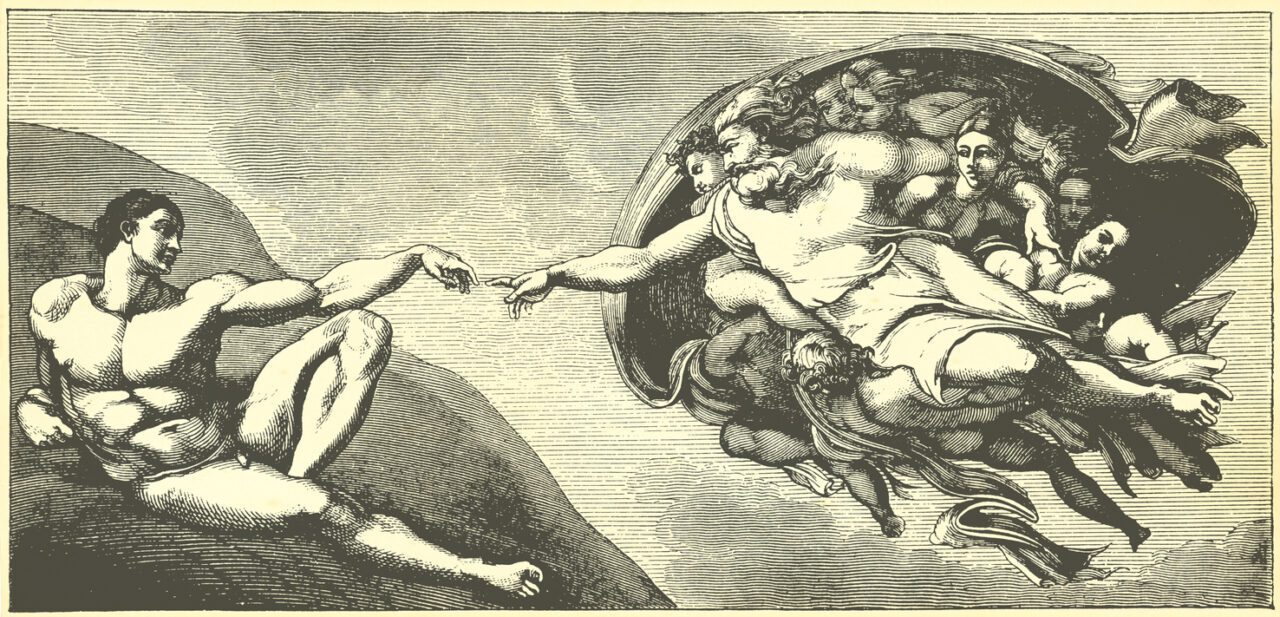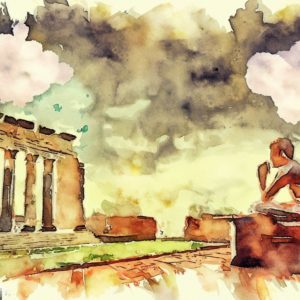Welcome back to the Logos of Experience and Truth Podcast, where I work to help unlock the mysteries of the Beatific Vision.
Now, as I mentioned in the previous episode, I got ahead of myself in every other episode that I spoke about mysticism or the Logos, or the Image of God, or any of all those different types of things. I didn’t establish and define more in depth what the mysteries actually are for instance.
I’ll try and do that, but I’m especially trying to do this without scripting anything, so at this point I’m basically just pulling things out of my mind. The previous episodes I heavily outlined, heavily scripted them, like I said, I was concerned with credibility. I had gone to school for writing, but I was trying to double major in religion. The issue was that at the time of my senior year the UC school district here in California had decided that you couldn’t double-count humanities courses so I couldn’t get my Religious Studies degree at the same time I was trying to get my writing degree. That ended that. So essentially, I don’t have a degree in religion, even though I was heavily studying it then and over the years since then, I became disenfranchised with the school system. The catch-22 of needing a degree to get a job but then needing experience to get a job and I just got sick of that pay-to-play system of schooling and didn’t want to incur any more debt from it. So essentially, where I could’ve gone and finished and gotten the Religious Studies stuff, like I said, I became disenfranchised from it.
So, I was very concerned with establishing my credibility because I don’t have any of that technical, traditional schooling, that type of stuff. I don’t have a master’s or a PHD in this. All I have is experience and patience and skeptical thinking, meditation on what this is, what the mysteries are, what the mystical experience is and trying to decipher through all the symbolism of everything I’ve come across what these actually do.
The mysteries have existed for who knows how long. When you study any of the text. . . I mentioned I re-read some of Plato and Socrates, it’s hard to say both of them quote it. It’s kind of difficult if you’ve never read Plato because Plato writes through the mouth of Socrates so is it Plato, is it Socrates that’s talking? But either way, I’ll just say Plato just to not get confused. Plato mentions the mysteries, that they study them, they know about them, that there are priests that teach it at that time in ancient Athens. And then, obviously once you look at that, you go deeper, that’s where the Oracle at Delphi is, that’s where the Eleusinian Mysteries are and then once you go into the broader scope of the Mediterranean, there’s other centers, other locations where what are called the mysteries are taught and most importantly because this is what was important back then: they were experienced by people.
Now, any deeper study into the mysteries, any deeper looking into it, they’re very difficult to decipher them because one of the rules of anybody that entered into these kind of temporary monasticism because there were these little temples, these kind of schools, little areas and you would go to them and there were different ones. One could be a real short one, others could be much longer ones, so there’s different differentiation when it comes to them. But kind of thinking of them almost as a spa, right? If you went to a spa for a weekend and you got to relax but they also taught you some wacky stuff but you left thinking differently. That’s kind of a funny way of thinking about the mysteries in ancient times, but essentially, people would go to them, especially if we think of the grandest one that existed back then and there was a greater and a lesser version of it, so depending on how much time you spent at them.
But essentially what they did was they taught is they taught knowledge of the self. It doesn’t really matter which one they were, kind of the general thing about all of them was they taught knowledge of the self and they taught knowledge of the gods, right. Since obviously back then we’re talking polytheism. So, they taught the gods and knowledge of the self which is the teaching that was above the Oracle at Delphi, Know Thyself. And if you watched the Matrix, the old-school one. . . I saw the new one and I can’t remember if they restated it, I think they did. But obviously in the old one, it was the sign on there. She gives Neo a whole bunch of stuff about Know Thyself, right? You have to know yourself if you are the one, essentially is what she tells him in that movie.
That’s what the mysteries taught. They taught knowledge of the self. Now that’s a whole other concept right there: the Self. But diving into what is the Self, and I spent a great deal of that on one of the episodes. I think it was on the Logos or in the Image of God and then I dove into the Self and how that can be translated into these different concepts that exist in spirituality, especially in the Christian tradition since again, that’s the avenue that I most take even though I’ve studied many other things as well.
The mysteries in ancient times were specific about knowledge of the self but going beyond knowledge. It was more about experiencing that knowledge. One of the rules was that it was kind of like Fight Club. You do not talk about Fight Club. You do not talk about the mysteries and what you saw and what you experienced. And that’s what’s made it very difficult for any historian, any scholar to figure out what these mysteries actually were. The only way we know about them is obviously some people spilled the beans on what was going on inside of these rituals. But in general, there’s really very little that emerged from this time period explaining what these mysteries actually were, of what actually took place in them.
When you go into any of the historical records from the various writers of the early Christian centuries, so I’m thinking of Iamblichus. I think he was second or third century AD. He gives overviews of what these mysteries were and kind of a little bit of their historical stuff but doesn’t really dive into what actually occurred. I think there was one report from the Eleusinian mysteries of you kind of go into these underground caverns and there’s all these different things and they show you this and they show you that and seems there’s a lot of use of sound and light to kind of disorient you, to try and create and implant something into your mind that would help you to understand the mysteries, of what the mysteries are. Essentially, the mysteries of the self, the mysteries of existence, the mystery of the gods are the key ideas that they were trying to impart onto a person that decided to enter into these: the mysteries.
This is the ritual at the end of it. There are scant details on how much time they prepared for it, but there was a prep period. There was a preparation period that led to these types of mystical experiences that taught these different topics.
And why these are important is because this was the ancient way of showing and teaching these types of things. Now the mysteries in today’s sense and the sense that I’m talking about and in the sense that more people might be more familiar with are essentially the Sacraments of the Church, Christianity and whatever sacraments still remain in the Protestant division of Christianity. Because that’s essentially what sacrament translates to. Sacrament is mystery. So, in the Christian sense these Sacraments are the mysteries of God interacting with us, how God interacts with us, how God imparts His being to us in some mysterious way, right and this why they are called the Sacraments.
The clearest one would be the Eucharist. Obviously, there’s differentiation now especially and over the past several centuries of is the Eucharist real? Is that an actual thing? Blah, blah, blah. So, I’m not going to get into that in this or in the next episodes, but essentially the Eucharist and the Sacrament in the traditional sense is that it’s a method, way, manner of God imparting His being onto us and that’s the grace. Eucharist is grace being imparted to us. It’s a method of this occurring. Obviously at some point I can dive deeper into that.
That’s what these mysteries are. So, when I say unlocking the mysteries of the Beatific Vision of God, Beatific Vision would be experience. So, unlocking these mysteries is essentially unlocking the method by which somebody, and if we use the ancient term an initiate, experiences in a manner that either shows knowledge of the self or knowledge of God. That’s what the mysteries are. But in doing this, the why is this important for a person is because it helps to focus, orient, unlock the mind. There’s something about doing this, there’s something about the mystical experience, even if it occurs from a drug experience. And again, I’m not advocating the drug method because there’s a lot of negatives that come to it and if you’ve listened to any of the other things I’ve spoken about, I mention a lot of those negatives and I’ll probably get into it again—most likely will get into it again. But there’s a lot of negatives that come from that. If for instance you are saying in the traditional drug sense, of I want to expand my mind by doing drugs, there’s a lot of negatives that come with that. Where the traditional sense of the mysteries of knowledge, preparation, understanding, meditation. . . there are no negatives. And all it does is penetrate your mind, extraordinarily to its depths to where you essentially unlock yourself.
For me, I mentioned, there really was nothing more important than that: understanding myself. And the by-product of understanding and knowing thyself was, “Oh, I now know how to use my mind.” I now know how to focus, I now know how to think, I now know how to formulate a plan. I now know how to fail so that I can succeed. I now know how to succeed from failure. Those types of things. That is what unlocking your mind does and the mysteries is the traditional method of achieving this.
Now, I don’t know how to word it. It’s kind of like if you’ve made a to-do list or you have your goal sheet, you have things that you want to achieve. Well, when you achieve them, you mark them off your list and now there’s a vacuum and you have to fill that up with something else. Well, if you’re trying to understand for instance, the big grand-daddy question of: Is God real? Is there a God? And if through the mysteries, you’ve now answered that question, well there’s now a gigantic vacuum that will exist in your mind of: well, what am I going to try to solve next? And that’s an aspect of what I’m trying to talk about here, the benefit of these types of understandings, knowledge, wisdom, and most importantly, the experience of it.
Thinking about something is one level of knowing, but experiencing is another level of knowing. Just as, if you’re only experiencing but never understanding the logical intellectual aspect of it, how much are you actually gaining? So, that was the purpose and the method of the mysteries, of mysticism. You need to have the intellectual to have the mysticism, but if you’ve had the mysticism, you need to have the intellectual in order to fully grasp what was experienced. That’s what the mysteries do. There’s no other way for me to explain that. The mysteries unlock your mind by teaching you: A, what the mind is, and B, how to navigate it.
And I’ll leave you at that. We’ll dive into something else next time at the Logos of Experience and Truth Podcast.





